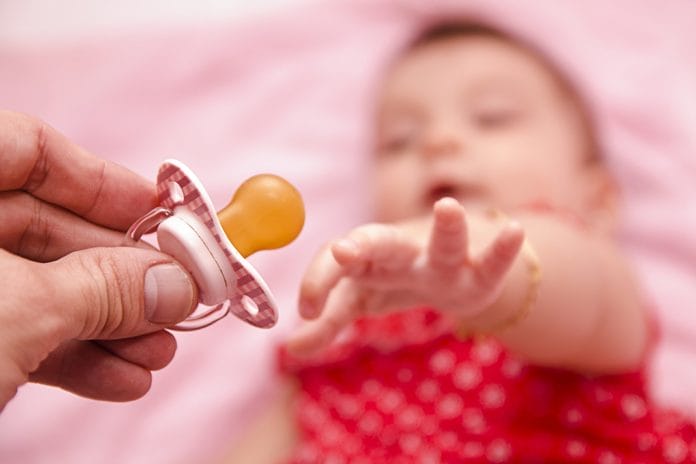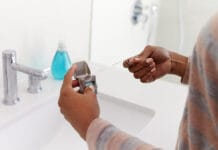To Whom It May Concern,
Your recent article published on your website on November 19, 2018, titled “Sucking Baby’s Pacifier Clean May Prevent Allergies,” has me concerned for babies health. Let me begin by introducing myself; I’m a Registered Dental Hygienist. Dental hygienists are also considered preventive health care specialist; we are one of the professions in the health care industry that work to prevent disease and not just treat disease. With that being said, let me explain my concerns.
Your article cited a study from the Henry Ford Health System. I read this study very closely and found your article omitted some important points made in the study. Your article concludes, “parents should exercise common sense when cleaning pacifiers that have been dropped into very germ-laden situations, such as a garbage can or bathroom floor. Dr. Abou-Jaoude also notes that more research is needed before making a definite conclusion on the matter.” This is not what the study concluded. The study concludes “Dr. Abou-Jaoude cautions parents from concluding that sucking on their baby’s pacifier to clean it will lower their child’s risk of developing allergies. More research is needed to examine that potential correlation, Dr. Abou-Jaoude says.”
These two conclusions are very different. However, for argument’s sake, let’s say the conclusion was strong and no more studies were needed. In that case, your child would have lower levels of IgE, which would lower the chances the child would develop allergies or asthma. A study conducted in 2015 titled “Guidelines on the Management of IgE-Mediated Food Allergies” lists many ways to reduce food allergies and asthma including breastfeeding for the first 4 months, no dietary restriction in mother during pregnancy and breastfeeding, no delay in the introduction of solid foods (also known as baby-led weaning), no specific measures to reduce house dust mite allergens as a means of primary prevention, and no restrictions on the keeping of domestic pets in at-risk children, no acquisition of cats in at-risk children, just to name a few. All these recommendations are much safer than cleaning a baby’s pacifier by sucking on it.
I think we can both agree that babies’ immune systems are not fully developed through the first year of life. This clearly makes babies more susceptible to bacteria and viruses. Saliva contains a lot of bacteria, some good, which could help develop the immune system, but there are also many bad bacteria that live in adult mouths. These bad bacteria can be transmitted just as easily as the good bacteria via sucking a baby’s pacifier to clean it then placing it in the baby’s mouth. Your article neglects to explore this issue.
Mother’s may think they are doing a good service for their baby, but they may be exposing them to S. mutans, the bacteria responsible for causing dental decay, or P. gingivalis, the bacteria responsible for periodontal disease, as well as many other systemic diseases. National Children’s Oral Health Survey by Delta Dental Plans Association, finds that U.S. parents report 30 percent, or roughly 8.6 million, of their 6 to 12-year-olds have missed school due to an oral health problem (as opposed to a regularly scheduled dental appointment). If mothers are encouraged by your article to clean their baby’s pacifier by sucking on it, they may have just introduced them to a bacterium that will cause a lifetime of dental problems.
Furthermore, the possibility of exposing babies to numerous viruses is a serious concern as well. The list is long, but I’ll try to keep it succinct. They include HSV 1, HPV, EBV, norovirus, and flu. I’ll start with information on HSV, a study published in 2016 states Neonatal infection with herpes simplex virus (HSV) type 1 (HSV-1) or HSV type 2 (HSV-2) causes serious illness with potentially devastating consequences, often resulting in death or long-term disability. Infection with HPV will not have immediate consequences; however, it is associated with oropharyngeal cancers. Researchers from Canada say their new study, published in the journal, offers more evidence that HPV transmission can occur through oral-to-oral contact with an infected person. According to the CDC, HPV can infect the mouth and throat and cause cancers of the oropharynx (back of the throat, including the base of the tongue and tonsils). This is called oropharyngeal cancer. HPV is thought to cause 70% of oropharyngeal cancers in the United States. Pretty scary stuff to introduce to your baby.
Your timing couldn’t be worse; you published this article during flu season. A record number of children died from the flu during the 2017-2018 flu season. The average incubation period for the flu is two days, that is two days a mother would be contagious with no symptoms and cleaning the baby’s pacifier risking infecting their baby with the deadly flu virus. Babies under six months old are too young for the flu vaccine, which puts them at a higher risk of contracting the flu. I don’t think it is wise to increase this risk by sucking on a baby’s pacifier to clean it.
Norovirus is another deadly virus which contributes to about 56,000 to 71,000 hospitalizations and 570 to 800 deaths, mostly among young children and the elderly. One way norovirus is contracted is through direct contact with someone who is infected through sharing food and eating utensils. The incubation period is 12-48 hours, again several hours to days without symptoms, possibly passing a deadly virus to the baby.
One other issue I would like to discuss regarding this topic is the anti-vaccine movement. Though the anti-vaccine movement is not all that new, the number of children not being vaccinated for MMR increased starting around 1998. These children that were not vaccinated are now around 20 years old, right around the beginning of the child-bearing years. This increases the risk of passing measles, mumps, or rubella to babies born to these non-vaccinated individuals. Though the death rate for measles, mumps, and rubella are relatively low, watching your baby suffer through one of those viruses would certainly be heartbreaking.
In conclusion, I feel like this article is very irresponsible and has a lack of important information. I hope you will consider adding an addendum to your original article warning mothers of the possible risks associated with cleaning their baby’s pacifier by sucking on it. Some of these viruses and bacteria can be deadly or cause a lifetime of health issues.
Sincerely,
Spring Hatfield, RDH
Originally published on Dental Masterminds, LLC.











